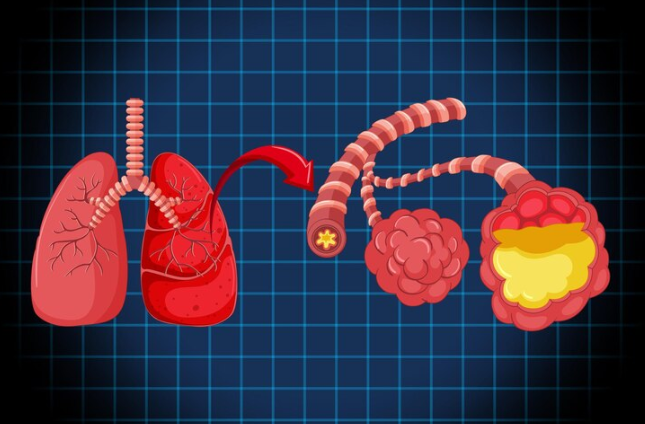Pembrolizumab Immunotherapy Current & Future of Cancer Treatment
Pembrolizumab Immunotherapy is an immune checkpoint inhibitor, a form of immunotherapy, designed to help the immune system target and destroy cancer cells. It is a monoclonal antibody that binds to the programmed cell death 1 (PD-1) protein on T cells, preventing cancer cells from evading immune detection. By blocking this interaction, pembrolizumab enables the immune system to attack and eliminate cancer cells effectively. Initially, it gained accelerated approval from the FDA in September 2014 for treating advanced, refractory melanoma. Since then, pembrolizumab has been approved for several other cancer types, with ongoing clinical trials exploring its potential in additional oncologic conditions. This innovative treatment is accessible right here in Pune! Discover the expertise of Dr. Pratik Patil, recognized as the best oncologist in Pune, specializing in immunotherapy, and can guide you through your cancer treatment options.
Read this interesting article on how pembrolizumab transforms treatment across various cancer types.
The Role of Pembrolizumab Immunotherapy in Cancer Treatment:
Biliary Tract Cancer:
Pembrolizumab is used in combination with gemcitabine hydrochloride and cisplatin for biliary tract cancer that is either unresectable or has metastasized. This regimen aims to manage the disease when surgical options are no longer viable.
Breast Cancer:
For triple-negative breast cancer (TNBC), Pembrolizumab is employed in multiple scenarios:
Advanced Stage: It is combined with chemotherapy for patients whose tumors express the PD-L1 protein and are either recurrent, unresectable, or metastatic.
Early-Stage: It is used with chemotherapy before surgery and continued alone after surgery in patients with high-risk early-stage TNBC, aiming to reduce recurrence.
Classic Hodgkin Lymphoma:
Pembrolizumab is used:
Adults: For cases that are refractory or have relapsed after initial treatments.
Children: For relapsed or refractory cases after at least two other treatment lines.
Cervical Cancer: Pembrolizumab’s role in cervical cancer includes:
Stage III/IVA: Used alongside chemotherapy and radiation therapy for advanced-stage cervical cancer.
Recurrent or Metastatic: Combined with chemotherapy, with or without bevacizumab, for cancers that are PD-L1 positive and have either relapsed or metastasized.
PD-L1 Positive Refractory Cases: Administered alone for cancers that have worsened during or after chemotherapy.
Cutaneous Squamous Cell Carcinoma:
For this skin cancer, Pembrolizumab is indicated in patients whose disease has recurred or spread and is not amenable to surgical or radiation therapy.
Endometrial Carcinoma:
Pembrolizumab is approved for:
Combination Therapy: With carboplatin and paclitaxel followed by monotherapy for patients with advanced or recurrent endometrial cancer.
Monotherapy: For MSI-H or dMMR cancers that are not curable by surgery or radiation.
Lenvatinib Combination: For cancers that are not microsatellite instability-high (MSI-H) or mismatch repair deficient (dMMR), which have progressed after other therapies.
Esophageal and Gastroesophageal Junction Cancer:
Pembrolizumab is used:
Chemotherapy: Combined with platinum-based chemotherapy and fluoropyrimidine for cancers that cannot be treated with surgery or chemoradiation.
As Monotherapy: For squamous cell cancers that are PD-L1 positive, following prior systemic therapy.
Gastric Cancer:
For advanced gastric or gastroesophageal junction adenocarcinoma:
HER2 Positive: Pembrolizumab is used with trastuzumab, fluoropyrimidine, and platinum-based chemotherapy.
HER2 Negative: Administered with fluoropyrimidine and platinum-based chemotherapy.
Hepatocellular Carcinoma:
Pembrolizumab is indicated for patients who have progressed on sorafenib, providing an alternative therapeutic approach for advanced liver cancer.
Melanoma:
Pembrolizumab is applied in:
Advanced Cases: For cancers that are unresectable or metastatic.
Adjuvant Therapy: In adults and children aged 12 years and older with stage IIB, IIC, or III melanoma, following surgical resection.
Merkel Cell Carcinoma:
Pembrolizumab is used for Merkel cell carcinoma that has recurred or spread in both adults and children.
Microsatellite Instability-High (MSI-H) or Mismatch Repair Deficient (dMMR) Cancers
Pembrolizumab treats:
Solid Tumors: In both adults and children with TMB-H solid tumors have progressed after other treatments and are not amenable to other therapies.
Colorectal Cancer: Specific focus on cancers with MSI-H or dMMR characteristics.
If you want to explore immunotherapy for your cancer treatment, book an appointment today with Dr. Pratik Patil to discuss your options and take the next step toward your health.
https://www.pratikpatil.co.in/pembrolizumab-immunotherapy-current-future-of-cancer-treatment/Pembrolizumab Immunotherapy Current & Future of Cancer Treatment
Pembrolizumab Immunotherapy is an immune checkpoint inhibitor, a form of immunotherapy, designed to help the immune system target and destroy cancer cells. It is a monoclonal antibody that binds to the programmed cell death 1 (PD-1) protein on T cells, preventing cancer cells from evading immune detection. By blocking this interaction, pembrolizumab enables the immune system to attack and eliminate cancer cells effectively. Initially, it gained accelerated approval from the FDA in September 2014 for treating advanced, refractory melanoma. Since then, pembrolizumab has been approved for several other cancer types, with ongoing clinical trials exploring its potential in additional oncologic conditions. This innovative treatment is accessible right here in Pune! Discover the expertise of Dr. Pratik Patil, recognized as the best oncologist in Pune, specializing in immunotherapy, and can guide you through your cancer treatment options.
Read this interesting article on how pembrolizumab transforms treatment across various cancer types.
The Role of Pembrolizumab Immunotherapy in Cancer Treatment:
Biliary Tract Cancer:
Pembrolizumab is used in combination with gemcitabine hydrochloride and cisplatin for biliary tract cancer that is either unresectable or has metastasized. This regimen aims to manage the disease when surgical options are no longer viable.
Breast Cancer:
For triple-negative breast cancer (TNBC), Pembrolizumab is employed in multiple scenarios:
Advanced Stage: It is combined with chemotherapy for patients whose tumors express the PD-L1 protein and are either recurrent, unresectable, or metastatic.
Early-Stage: It is used with chemotherapy before surgery and continued alone after surgery in patients with high-risk early-stage TNBC, aiming to reduce recurrence.
Classic Hodgkin Lymphoma:
Pembrolizumab is used:
Adults: For cases that are refractory or have relapsed after initial treatments.
Children: For relapsed or refractory cases after at least two other treatment lines.
Cervical Cancer: Pembrolizumab’s role in cervical cancer includes:
Stage III/IVA: Used alongside chemotherapy and radiation therapy for advanced-stage cervical cancer.
Recurrent or Metastatic: Combined with chemotherapy, with or without bevacizumab, for cancers that are PD-L1 positive and have either relapsed or metastasized.
PD-L1 Positive Refractory Cases: Administered alone for cancers that have worsened during or after chemotherapy.
Cutaneous Squamous Cell Carcinoma:
For this skin cancer, Pembrolizumab is indicated in patients whose disease has recurred or spread and is not amenable to surgical or radiation therapy.
Endometrial Carcinoma:
Pembrolizumab is approved for:
Combination Therapy: With carboplatin and paclitaxel followed by monotherapy for patients with advanced or recurrent endometrial cancer.
Monotherapy: For MSI-H or dMMR cancers that are not curable by surgery or radiation.
Lenvatinib Combination: For cancers that are not microsatellite instability-high (MSI-H) or mismatch repair deficient (dMMR), which have progressed after other therapies.
Esophageal and Gastroesophageal Junction Cancer:
Pembrolizumab is used:
Chemotherapy: Combined with platinum-based chemotherapy and fluoropyrimidine for cancers that cannot be treated with surgery or chemoradiation.
As Monotherapy: For squamous cell cancers that are PD-L1 positive, following prior systemic therapy.
Gastric Cancer:
For advanced gastric or gastroesophageal junction adenocarcinoma:
HER2 Positive: Pembrolizumab is used with trastuzumab, fluoropyrimidine, and platinum-based chemotherapy.
HER2 Negative: Administered with fluoropyrimidine and platinum-based chemotherapy.
Hepatocellular Carcinoma:
Pembrolizumab is indicated for patients who have progressed on sorafenib, providing an alternative therapeutic approach for advanced liver cancer.
Melanoma:
Pembrolizumab is applied in:
Advanced Cases: For cancers that are unresectable or metastatic.
Adjuvant Therapy: In adults and children aged 12 years and older with stage IIB, IIC, or III melanoma, following surgical resection.
Merkel Cell Carcinoma:
Pembrolizumab is used for Merkel cell carcinoma that has recurred or spread in both adults and children.
Microsatellite Instability-High (MSI-H) or Mismatch Repair Deficient (dMMR) Cancers
Pembrolizumab treats:
Solid Tumors: In both adults and children with TMB-H solid tumors have progressed after other treatments and are not amenable to other therapies.
Colorectal Cancer: Specific focus on cancers with MSI-H or dMMR characteristics.
If you want to explore immunotherapy for your cancer treatment, book an appointment today with Dr. Pratik Patil to discuss your options and take the next step toward your health.
https://www.pratikpatil.co.in/pembrolizumab-immunotherapy-current-future-of-cancer-treatment/








